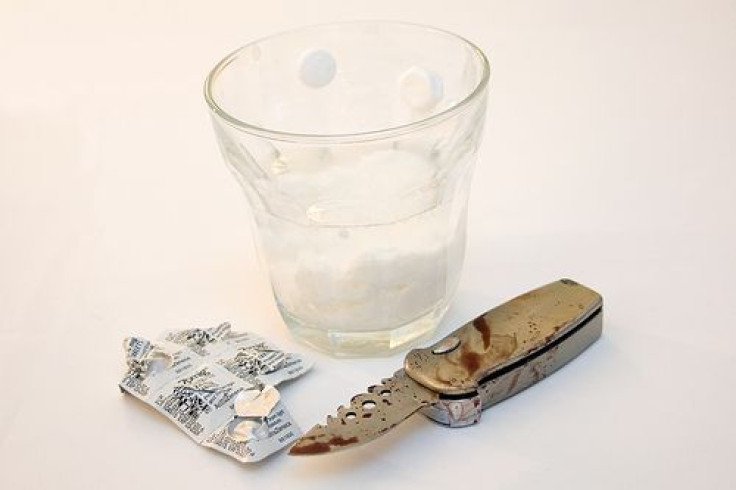Can Biologists Predict Suicide? Biomarkers In Patients’ Blood Show Increased Risk For Suicidal Behavior

The current procedure for diagnosing suicide risk depends mostly on direct feedback from the patient. This reliance on testimony can be flimsy and hard to verify, which is why one small study has large implications for the prospect of biologists one day predicting suicide through blood tests.
Searching For The Biomarkers
Researchers from the Indiana University School of Medicine have found six biomarkers in human blood that substantially increase the risk for suicidal thoughts and behavior, the team argues. The findings move the medical community closer to unlocking parts of the brain that have otherwise been inaccessible.
“It’s a preventable tragedy,” said Alexander Niculescu, a psychiatrist at Indiana University and one of the study’s lead authors, adding that urging patients to seek treatment can be difficult if they don’t believe they need hospitalization. "They don't want to be stigmatized, or hospitalized. Or they may not want to be stopped.”
To perform the study, researchers collected nine men with bipolar disorder who originally participated in a longitudinal cohort study at Indiana University. Between visits to the lab, the men had switched from having no suicidal thoughts to scoring highly on the suicide-risk scale. In the switch, the scientists looked at the gene expressions in the men’s blood cells, hoping to glean any discernible changes.
They initially found 41 candidate biomarkers, which they compared to previous studies involving similar cases of mental illness and suicide. “It works like a Google search ranking,” said Niculescu. “Those that had the most independent lines of evidence got the highest rank.”
These 41 biomarkers were then put to the test in the coroner’s office, as the team cross-checked them against nine separate men who had committed suicide. The candidacy pool dropped to 13. Further testing and statistical analysis lopped off another seven, leaving the total at six biomarkers the researchers felt confident about.
But to apply greater rigor to the study, the team decided to investigate the biomarkers’ prominence in separate patients — 42 men with bipolar disorder and 46 with schizophrenia. They found correlations with four of their biomarkers, particularly in the men with bipolar disorder. This implies that the active genes aren’t “state markers” of immediate risk, but “trait markers” that indicate long-term risk. The accuracy of the tests jumped further — from 65 percent to 80 percent — when the researchers tested the biomarkers alongside mood and mental state.
Limits And Concerns
While the team’s findings seem like a big step forward, some experts are hesitant to heap on too much praise. The small sample size and lofty subject make for a fickle study that can leave ample room for a false positive. The results are not yet “ready for prime time,” Dr. Charles Luther, director of inpatient and emergency psychiatry at Lenox Hill Hospital in New York City, told My Fox Philly.
"It's very difficult to pin down risk," Luther noted. The current method of asking and answering has clear limits because “all we can do is ask them what's going on in their mind,” he said.
But for some doctors, this inquisition process makes patients feel more comfortable with their mental state, not to mention with treating it. Diagnosing an unstable, or suicidal, mental state simply through a blood test can seem foreign to many people, given the brain’s deep complexities. A number on a screen or on a readout could seem belittling.
And while suicide rates are admittedly low, one of the great paradoxes about research into the behavior is that for its seriousness, as Niculescu notes, scant research exists to loosen its debilitating grip on people. Investigating ways to identify suicide's risk factors early on, then, must strike a balance between clinical diagnosis and human care.
"We're dealing with human beings, with complex emotions and experiences," Luther said. "We need to know more about them than just blood test results."
Source: Niculescu A, Levey D, Ayalew M. Discovery and validation of blood biomarkers for suicidality. Molecular Psychiatry. 2013.



























